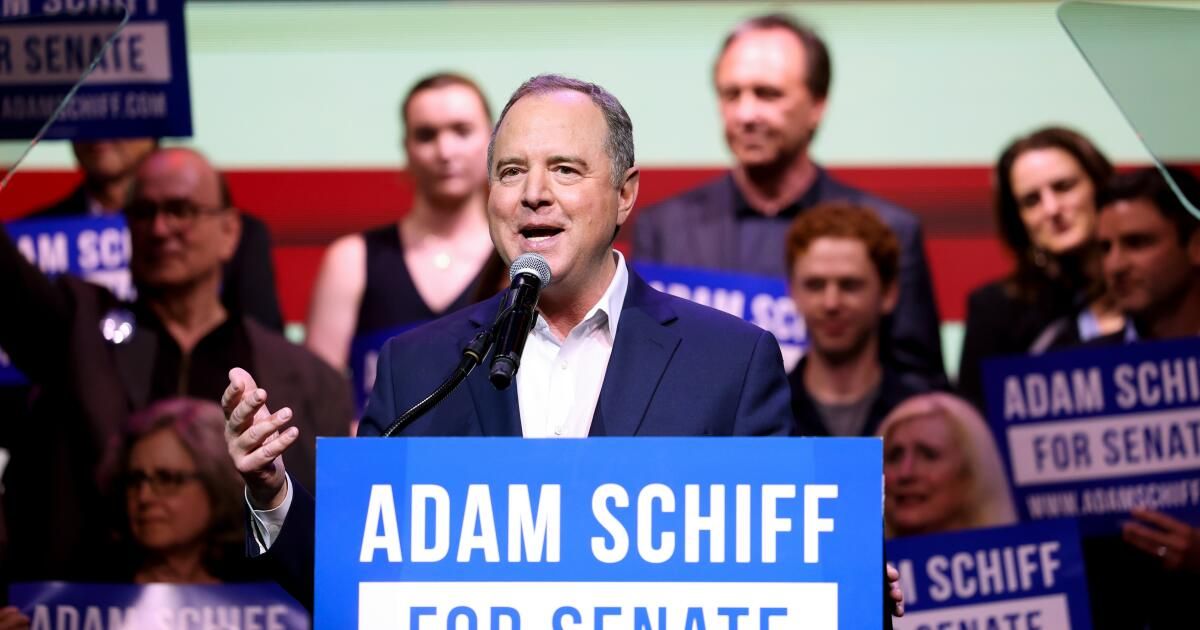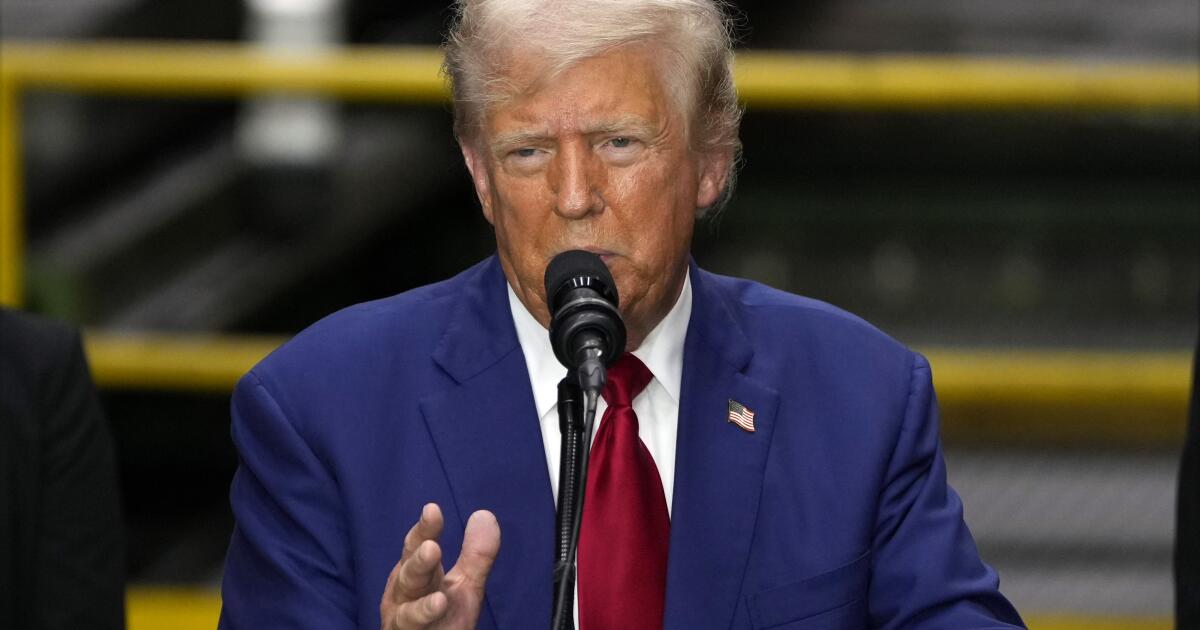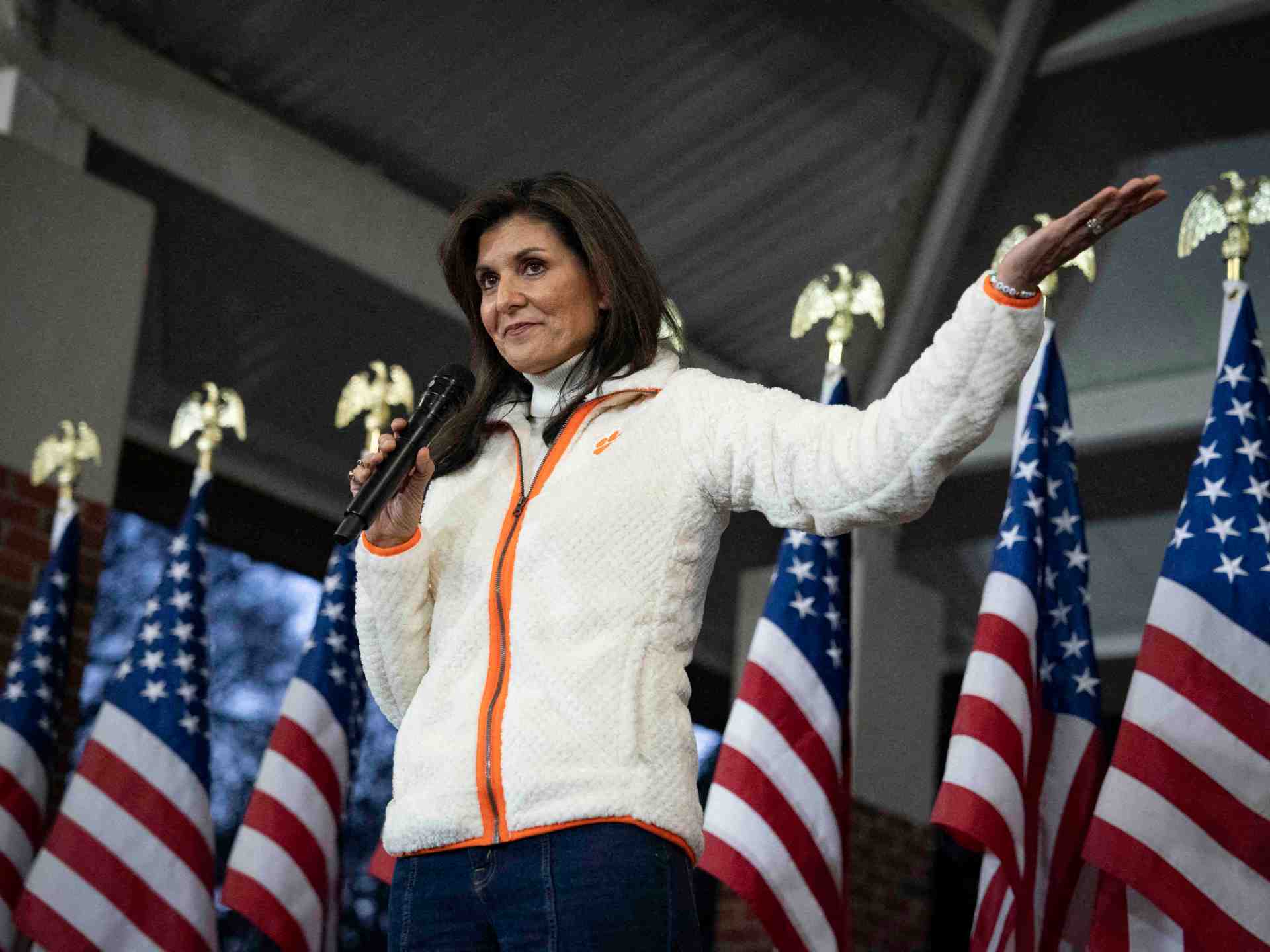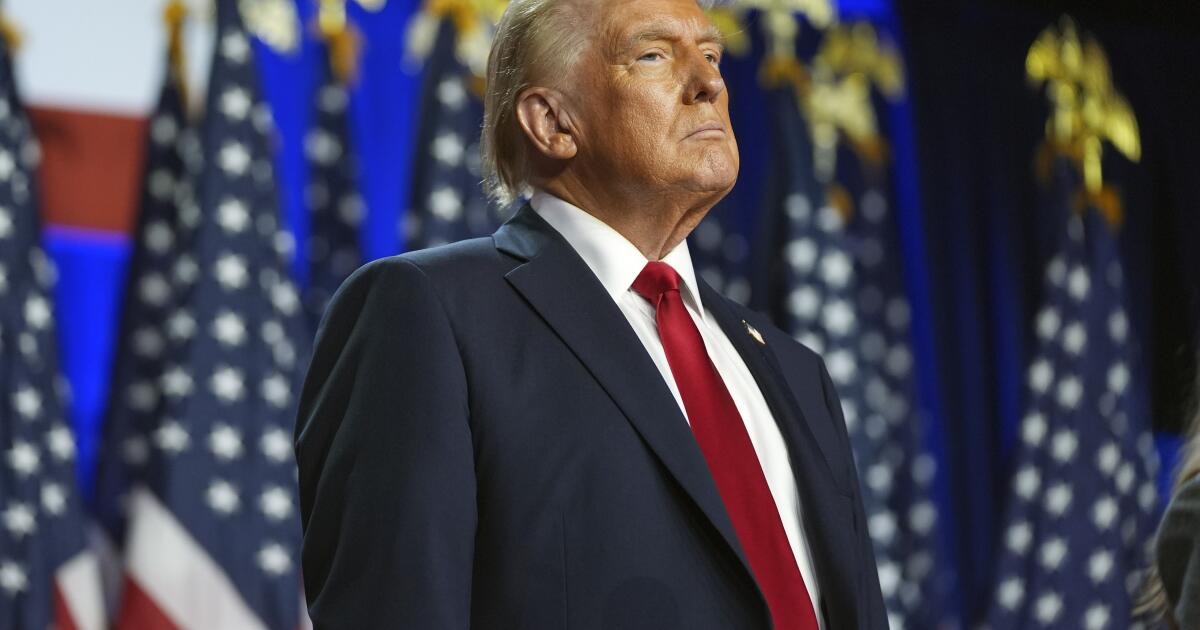Adam Schiff got the November opponent he wanted.
Steve Garvey was prepared to be taken down.
And by the end of the year, California will likely have a new U.S. senator similar to its previous one, Dianne Feinstein, whose former seat Democrat Schiff is vying to fill.
Voters spoke Tuesday in the state's primary election, and what they said was: We'll stick to what we know.
By choosing Schiff, a congressman from Burbank who was the most moderate of the leading Democratic candidates (and therefore the most like Feinstein), they rejected the leftward shift promised by two other liberal alternatives, Reps. Katie Porter of Irvine. and Barbara Lee of Oakland.
By advancing Republican Garvey into the November general election, voters set up a conventional showdown between candidates of opposing parties and philosophies, rather than an atypical Democrat-on-Democrat runoff that revolves around personal temperament and differences in political grade. .
And by elevating Garvey over Porter, they also effectively settled the Senate race with the general election still eight months away.
There are no certainties in life. The same goes for politics.
Barring an extraordinary set of circumstances, however, Schiff will be California's next senator, succeeding Laphonza Butler, who was appointed to replace Feinstein after her death in September.
(A quick refresher: Under California's election system, the top two finishers in the primary advance to the November general election, regardless of party. The winner will finish Feinstein's term, which ends in January, and then begin a full term Schiff is much happier facing Garvey than Porter, who would have been a much tougher opponent.)
Democrats enjoy a nearly 2-to-1 voter registration advantage in California, and everyone except those blinded by partisanship can see the gulf between Schiff and Garvey when it comes to experience, knowledge, and political ability.
In his first run for political office, Garvey has proven to be as empty as a vacuum tube. His political positions are painted by numbers and suggest the same consideration. The former Dodgers and Padres baseball star didn't run a campaign but rather stood by and waited for Republican voters to come to him.
Its ending shouldn't be a big surprise. Candidates with an “R” next to their name can expect about 40% support in a general election in California, so it wasn't difficult to gain enough support in the primary to advance into November, especially with Schiff, Porter, Lee and several others dividing the Democratic vote.
With about half of the results counted, Porter was a distant third, trailing Garvey by nearly double digits in the race for the full six-year term.
Lee, the most unabashedly liberal of the top Democrats, never stood much of a chance. His appeal beyond his super-progressive Oakland congressional district was always suspect, and his age (77) didn't help, particularly after Feinstein's sad, prolonged decline made longevity an issue for many Democrats.
Of course, Garvey, who did not spend a dime on television advertising, benefited greatly from the tens of millions that Schiff and his allies spent promoting his candidacy. Garvey was too MAGA and too conservative for California, Schiff's ads claimed, which was a draw to the Republican base, which didn't seem to care about Garvey's 75-year-old rookie status. The tactic was a way for Schiff, 63, to participate in choosing his preferred opponent, prompting plenty of commentary and handshakes.
Much of it was exaggerated.
Elections are about winning, within certain legal and moral limits, not about following an imaginary set of rules that dictate kindness or sportsmanship. Porter objected fiercely when Schiff began featuring Garvey in his advertisements. Then, as Garvey began to rise in the polls, Porter tried the same tactic, promoting a lesser-known Republican, Eric Early, in hopes of splitting the Republican vote.
So much for maintaining the high ground.
You may not like the machinations, but Schiff did not invent Garvey's party affiliation or his stance on the issues. The votes Garvey received were entirely legitimate and reflected the opinions of a not insignificant portion of the electorate.
California has 5 million registered Republicans, a number that exceeds the population of 28 states. While they're easy to overlook (especially for Democrats and their supporters), many GOP faithful are presumably happy to have someone to vote for who represents their party, rather than having to choose the least bad Democrat.
Potential successors spent years circling Feinstein's Senate seat, convinced that time would inexorably force her departure. To her credit, Porter ended the shadow campaign by declaring his candidacy weeks before Feinstein announced her plans to resign after his sixth term. (He died in office seven months later.)
In an interview with Rolling Stone, Porter, 50, was asked about Schiff's frequent invocation of the late senator, who most likely would have preferred the more moderate and less confrontational Schiff as his successor.
The Orange County legislator’s scathing response: “Sen. Feinstein, as you know, has passed away and cannot support him from the grave,” is indisputable. Furthermore, the choice was not up to Feinstein, even if she were alive.
The election was up to California voters, and by carrying Schiff into November and a supposed victory over Garvey, they showed that Feinstein's center-left ideology, studious manner, and results-oriented approach to governing have not lost their appeal. , even if the result might contradict the stereotype of the state as a mad land of ardent liberalism.
The center, or what they call it in California, prevailed.












